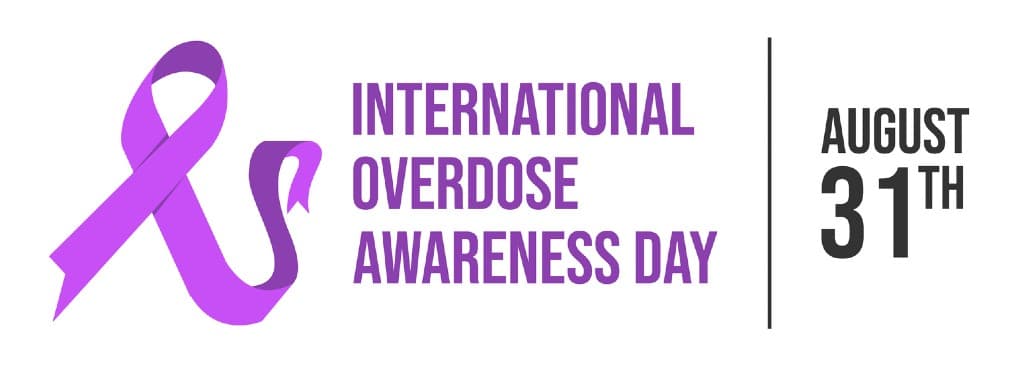If you’re struggling with substance use or another mental health issue, immediate virtual care is available through Vertava Health. We offer personalized counseling and therapy sessions on your schedule. There’s no shame in asking for help—it can save your life. Worldwide, there were 585,000 deaths involving drug use in 2017. The World Health Organization reports that one-third to half of all drug-related deaths are due to overdose. That same year, 70,237 lives were lost to drug overdose in the United States alone. August 31 is International Overdose Awareness Day, a time to remind people that overdose is a real threat that happens every day. It’s a day to honor the families who lost loved ones and break through the stigma surrounding drug overdose.
What Is International Overdose Awareness Day?
International Overdose Awareness Day began in Australia in 2001. Penington Institute, a nonprofit organization that researches and advocates for harm reduction and community health, has been organizing this day since 2012. It is now recognized in 39 countries.
There are several goals of International Overdose Awareness Day:
- raise awareness about overdose death across the world
- get rid of the stigma of drug-related death
- reduce the harm caused by drug use through evidence-based practices
- inform the public about overdose signs and symptoms
- teach people that overdose is preventable
- honor the memory of people who died of a drug overdose
To meet these goals, individuals promoting this day may provide information on overdose risk, community services, harm reduction, and addiction treatment. Some call for a change in drug policy and advocate for people who use drugs to be treated with respect.
How To Promote Overdose Awareness
Anyone can raise awareness in their corner of the world by spreading information about overdose. It isn’t something people usually talk about, and that’s part of the problem. The stigma surrounding drug use and overdose prevents many individuals from seeking help when they suspect an overdose. Countless deaths may be prevented by destroying this stigma so people feel safe calling 911.
People can promote overdose awareness through:
- educational events
- candlelight vigils for overdose victims
- walks to honor lost loved ones
- fundraisers
- naloxone (Narcan) training
- overdose awareness t-shirts
- social media posts
- overdose fact sheets
Silver badges, purple wristbands, and purple lanyards are also available as symbols of overdose awareness. Wearing these brings the issue to other people’s attention and may spark a conversation on the dangers of overdose.
Overdose Signs And Symptoms
Learning about overdose signs and symptoms for specific drugs that you or a loved one are taking—even if they are prescribed—can help save a life. There are many signs and symptoms of overdose that vary depending on the drug. If a person seems to be having a negative physical reaction, they may have taken too much and need medical attention.
The most common indications of opioid overdose include:
- pinpoint pupils
- loss of consciousness
- severe respiratory depression
- blue lips, skin, or nails (from lack of oxygen)
Overdosing on stimulant drugs may have the opposite effect, such as:
- rapid breathing
- irregular heartbeat/heart attack
- tremors or convulsions
- vomiting or diarrhea
Any type of drug overdose can cause a person to seem confused and may lead to a coma or death.
Who Is At Risk Of Overdose?
Drug overdose can occur for many reasons. It may be done on purpose by someone with suicidal intentions, but often it’s an accident. An overdose can happen the first time a person tries a drug because they take too much or aren’t used to its effects. It may result from mixing a substance with alcohol or other drugs, which can have unexpected consequences. People who struggle with drug addiction are at a high risk of overdosing because they tend to take drugs often and in high amounts. Injection drug use is especially dangerous because it pushes the substance directly into the bloodstream for an immediate and intense effect. Almost 70 percent of U.S. drug overdose deaths in 2018 involved an opioid. Synthetic opioids, such as fentanyl, have caused a dramatic spike in overdose deaths since 2013. Many people who overdose on fentanyl don’t even know they’re taking it. It’s been found laced into street drugs like heroin and cocaine, as well as in counterfeit prescription drugs like Xanax. Even people who take prescribed medications can overdose. They may increase their dosage without their doctor’s permission because they think it isn’t working well. They may accidentally take a double dose or drink alcohol without thinking about how it will mix with their prescription. Someone who is weaning off a prescription drug may overdose if they resume taking it at their usual dose. Because of the many possible causes of drug overdose death, the stigma surrounding needs to stop. Most states in the U.S. have Good Samaritan laws that protect people who overdose or the person with them who calls 911, but this isn’t the case everywhere. People are often punished for drug misuse when they need mental health treatment.
Preventing Overdose Through Mental Health Treatment
Overdose often results from a person using drugs in an improper or unhealthy way. Self-medication and using drugs to deal with stress can lead to addiction, a mental disease that usually requires treatment. International Overdose Awareness Day encourages people to ask for help with substance use before it’s too late. By dealing with mental health issues that lead to drug use, an individual can not only avoid overdose but also live a healthier, happier life.


